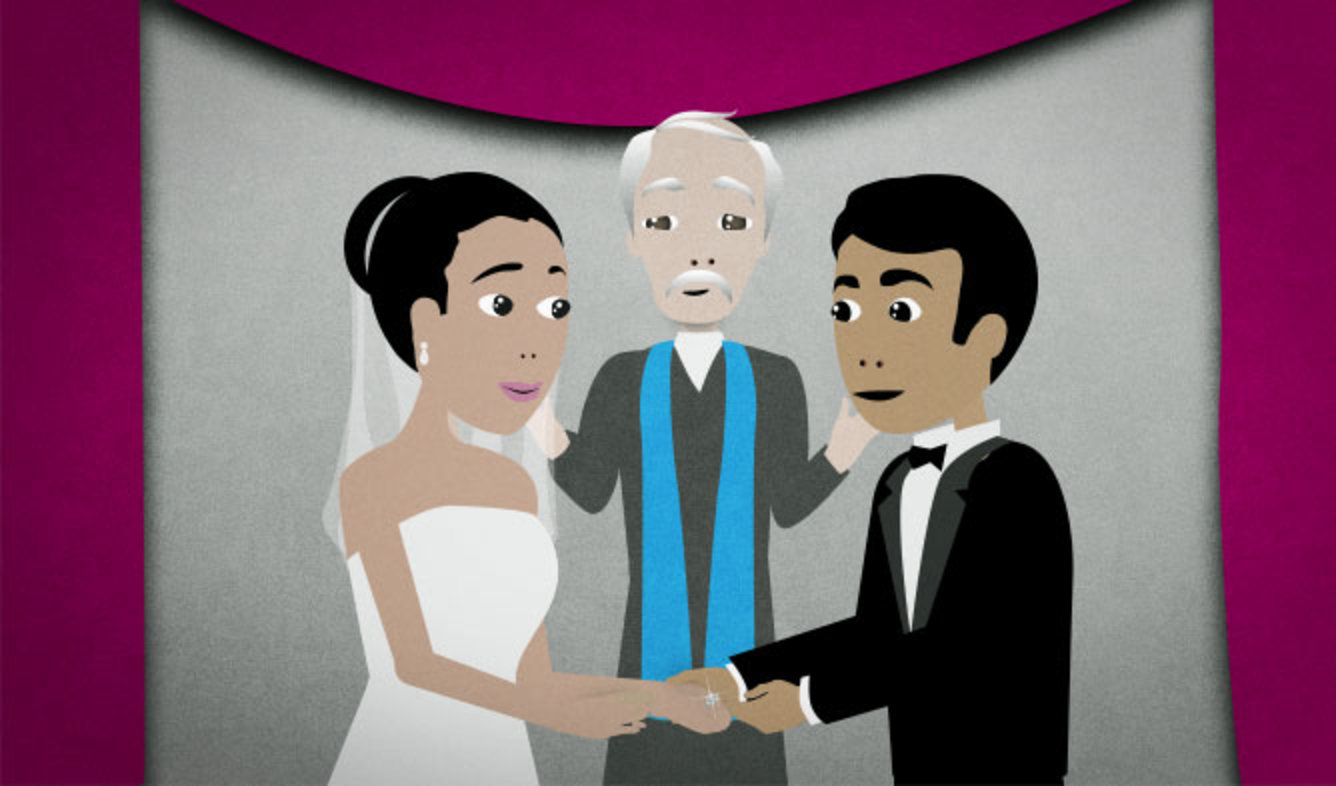“I now pronounce you man and wife. You may kiss the bride.”
You're at a wedding. The ceremony is almost finished. The minister says this to officially announce that the couple is married.
I now pronounce you man and wife. You may kiss the bride.
Want Video and Sound? Follow us on YouTube

I now pronounce you man and wife.
At a wedding ceremony, the minister or wedding officiant says this to officially announce that the couple is married.
This phrase is very formal-sounding.
"I now pronounce you..." means "I officially say that you are..." This expression is not often used outside of wedding ceremonies. If someone does say "I now pronounce you..." in another situation, it's probably a joke.
You may kiss the bride.
The minister or wedding officiant in a wedding says this at the end of a ceremony. It means that the couple may kiss each other.
Traditionally, the minister says "You may kiss the bride" to the groom. These days, some couples request that the minister say something like "You may now kiss" to avoid sexism.
You may (do something).
This is a very formal way to give someone permission to do something.
A judge in a courtroom might use the phrase "You may..." to give people permission to do things during a trial. For example, when the judge enters the court, everyone is supposed to stand. After the judge enters, he or she might say:
You may be seated.
You can also hear this expression when you take a formal, standardized test. The person who's administering the test (usually a teacher) will read the instructions. At the end of the instructions, when everyone is ready to take the test, he or she will say:
You may begin.
